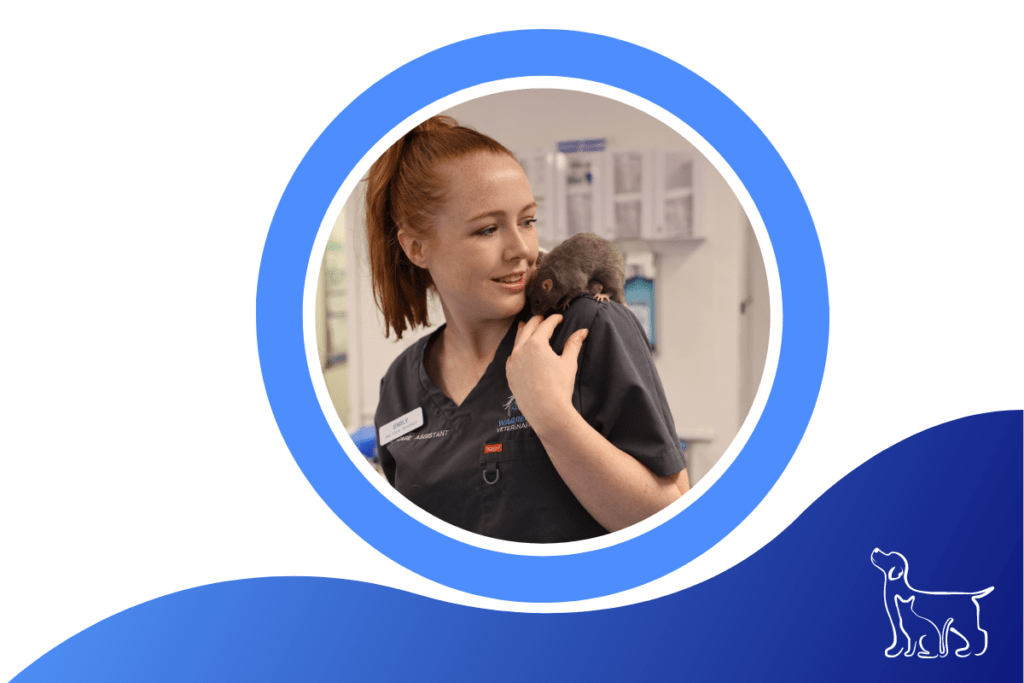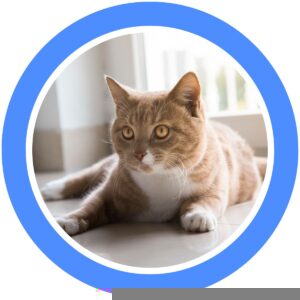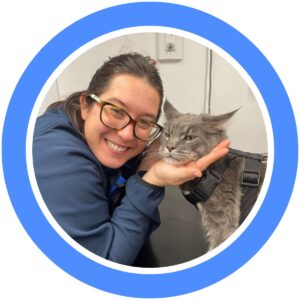Feline Dementia can also be referred to as Cognitive Dysfunction Syndrome (CDS) and is directly related to aging of a cats brain. CDS ultimately leads to changes in awareness, deficits in learning and memory, and decreased responsiveness to stimuli. CDS is the degenerative process of a cats brain that can ultimately lead to the loss or impairment of one or more of your cats cognitive functions.
Article written by one of our VCA’s Emily Barrington

Symptoms and types
The onset of feline dementia tends to be a slow process. The most common symptoms that you will notice will be behavioural. The behavioural signs of dementia typically become more noticeable when cats are 10 years or older.
Most common symptoms:
- Disorientation
- [Changes in] Interactions with others
- [Changes to their] sleeping cycle.
- Toileting in the house / outside of the litter tray.
- Activity level changes
Within these symptoms, you could see:
- Confusion/Anxiety/Restlessness
- Extreme irritability
- Decreased desire to play
- Excessive Licking
- Disregarding previously learned training/house rules
- Inability to follow familiar routes
- Lack of self-grooming
- Incontinence
- Loss of appetite
- Slow to learn new tasks.
- Increased vocalization

Causes of Dementia in Cats
One study shows that close to one-third of cats aged 11-14 years will show at least one behavioural symptom related to feline dementia. This increases to 50% for cats over 15 years. As in humans, genetic factors may predispose a cat to develop the condition.

Diagnosis
A thorough history of your cat’s health will be needed to assist in the diagnosis of Cognitive Dysfunction Syndrome. This includes the onset and nature of the symptoms and possible incidents that may be related to the behaviors of a cat with Dementia.
To help with diagnosis, once you begin to notice your pet’s behaviour changing, record any abnormal activities you are witnessing. This will allow the vet to look at how frequently these episodes are occurring and if they are related to Cognitive Dysfunction Syndrome.
When at the practice, our vet will perform a full clinical examination to evaluate your cat’s health and cognitive function. We may also suggest full blood test analysis, ultrasound examination, and X-rays, to help rule out any other diseases or conditions that may lead to the behavioural changes that you are observing in your cat.

Treatment
Cats with Dementia require lifelong therapy and support. Dedication to treatment can make a world of difference to your cat’s quality of life. There is no “cure” for feline Dementia, but you can help your cat by doing the following:
- Maintaining a healthy and stimulating environment – will help slow the progression of Cognitive Decline.
- Creating a daily routine of exercise, play, and training.
- Balanced specific diet – some special diets can help improve your cat’s cognitive function such as memory, learning, and ability. These diets are typically supplemented with omega-3, vitamin E, vitamin C, selenium, beta-carotene, and carnitine.
Managing Feline Dementia
Evaluating your cat periodically to monitor their response to therapy and the progression of symptoms is the best way to manage feline dementia. Keeping a diary of your cat’s activity is a good way to track its behavioural changes. For stable patients, twice-yearly check-ups are suggested, unless problems arise or you notice any changes in your cat’s behaviour.

